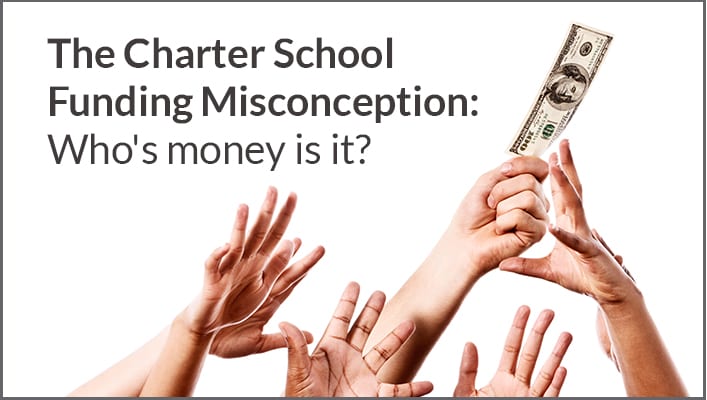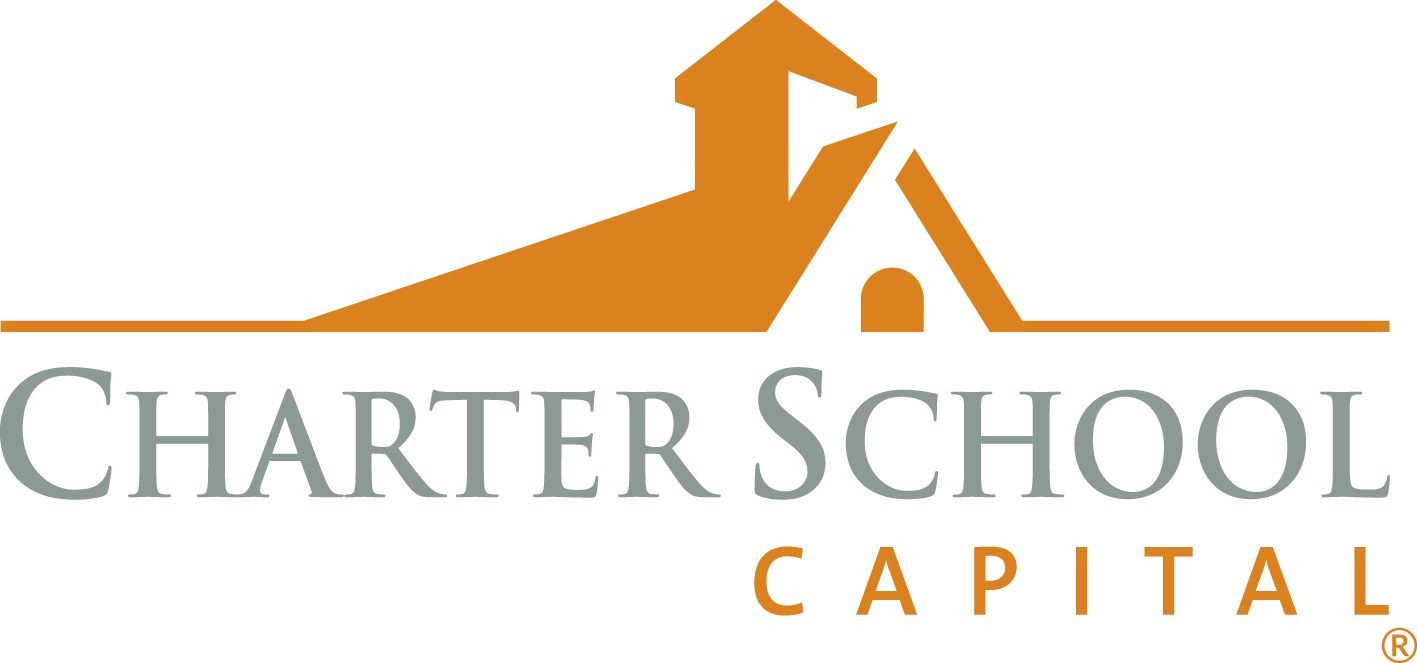 The Charter School Funding Misconception: Who’s money is it?
The Charter School Funding Misconception: Who’s money is it?
This article was originally posted here on September 5, 2018 by The74 and written by James V. Shuls, Ph.D., is an assistant professor of educational leadership and policy studies at the University of Missouri-St. Louis. It is an opinion article that challenges one key assumption about charter school funding: does the funding for public schools belong to the child or to the district? This question is at the heart of education reform arguments.
Proponents of school choice believe that every family deserves to choose the best educational option that suits their child’s specific and unique needs—whether that school is a traditional district public school or a public charter school. Opponents of the charter school movement believe that families that choose the public charter school are “taking” money away from traditional district schools. As this writer suggests, this may hold true if you believe the child, and the funding that follows them, are district property.
Do the traditional district schools have less money if the student opts for a public charter school? Yes. That is the natural result of freedom of choice as it is within any other industry, so why should it be different for education? If your local charter schools are outperforming your local district schools or offer your child something unique to their needs, shouldn’t you be able to make that choice?
If you think the funding belongs to the district and not the student, this writer makes an enlightening comparison to shopping at Walmart versus shopping at your local farmer’ s market, “It presupposes that the customer belongs to Walmart; that any time the individual chooses to buy cucumbers from a local grower or salsa from an aspiring entrepreneur, he or she is “robbing” the dominant grocer.”
We think it’s vital to keep tabs on the pulse of all things related to charter schools, including informational resources, and how to support charter school growth and the advancement of the charter school movement as a whole. We hope you find this—and any other article we curate—both interesting and valuable.
Read on for the complete article.
Shuls: Do Charter Schools Take Districts’ Money? Only If You Think Children, and the Funding That Comes With Them, Are District Property
How would you respond if you stumbled across a headline that asked, “How much do farmers markets cost Walmart?” It’s a ridiculous question. It presupposes that the customer belongs to Walmart; that any time the individual chooses to buy cucumbers from a local grower or salsa from an aspiring entrepreneur, he or she is “robbing” the dominant grocer. That’s just absurd. Yet this is the standard frame we use when talking about education. We blithely assume that education is wholly different from any other field.
Consider, for example, a recent headline on the Education Writers Association’s website: “How Much Do Charter Schools Cost Districts?” It’s the same question, and it is just as absurd as when talking about groceries. Worse, it is unethical, because it dehumanizes children, reducing them to economic units. In this formulation, neither they nor their parents are individuals with aspirations, endowed with free will and the ability to act in their own self-interest; they are a mere funding stream for public school districts.
This type of headline is all too common. Most people wouldn’t even bat an eye at it. But this isn’t just semantics. It gets at the heart of the way many people view public education.
It is only in education that we presume the customer is the rightful property of a specific supplier and therefore “costs” the supplier when he or she goes somewhere else. Indeed, this is the fundamental problem with the public education system in the United States: We presume the tax dollars that fund a child’s education belong to the public school district and the child belongs in a public school seat.
If, heaven forbid, parents want to use those education funds at a charter school or a private school, they must prove that “choice” works. We demand that school choice programs justify themselves by increasing student achievement on standardized tests, or increasing graduation rates, or fixing decades-old segregation issues. We would never ask the farmers market to prove its tomatoes are bigger and juicier than Walmart’s as a condition of operation.
It doesn’t stop there. A few years ago, one writer went as far as to say, “You are a bad person if you send your children to private school.” You can almost hear Snowball from Animal Farm repeating the mantra, “Four legs good, two legs bad.” It’s us versus them. We treat public education as if it — the system, the school district — were the ultimate good to be served. Just google “school vouchers” and look at the images. The internet is replete with political cartoons that characterize school choice programs as systematically dismantling traditional public schools, brick by brick.
Challenges to this concept are not new. In his 1958 book, Freedom of Choice in Education, Father Virgil Blum wrote that “our educational policy must be philosophically based on the dignity and transcendent value of the individual, on the integrity and freedom of the human person; it must be legally based on the Federal Constitution, recognizing the individual student clothed in all his constitutional rights.” We are no closer to that reality today than we were 60 years ago.
Our commitment to educating every child, regardless of wealth or ability, is a reflection of our highest and noblest ideals. What we do today in our public education system is a feat that was almost unthinkable even 100 years ago. Yet in the process of building that system, we somehow lost our purpose. Instead of the system serving the children, we now insist the children must serve the system.
If we are ever to change this, we must first change how we talk about public education. We can’t presume, as the author of the Education Writers Association piece did, that children and their funding inherently belong to the public school system. Do public school districts have less money when a student goes to a charter school or a private school? Absolutely — as they should. This is what happens in any industry when customers choose to spend their dollars at one place instead of another. More to the point, it is what happens when students leave a district school for any reason.
In the final analysis, we must realize that public education is not about the school system, but the students that it is supposed to serve. They have value. They have worth. They should have choices.
James V. Shuls, Ph.D., is an assistant professor of educational leadership and policy studies at the University of Missouri-St. Louis.
 Since the company’s inception in 2007, Charter School Capital has been committed to the success of charter schools. We provide growth capital and facilities financing to charter schools nationwide. Our depth of experience working with charter school leaders and our knowledge of how to address charter school financial and operational needs have allowed us to provide over $1.8 billion in support of 600 charter schools that have educated over 1,027,000 students across the country. For more information on how we can support your charter school, contact us. We’d love to work with you!
Since the company’s inception in 2007, Charter School Capital has been committed to the success of charter schools. We provide growth capital and facilities financing to charter schools nationwide. Our depth of experience working with charter school leaders and our knowledge of how to address charter school financial and operational needs have allowed us to provide over $1.8 billion in support of 600 charter schools that have educated over 1,027,000 students across the country. For more information on how we can support your charter school, contact us. We’d love to work with you!